Reflection: "God Comes in Many Forms"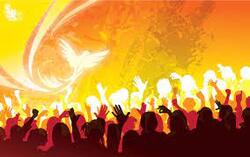 When we read the Old Testament, we discover that Pentecost was one of the major Jewish festival days.
The Jews called it the Feast of Harvest and it came on the 50th day (or 7 weeks) after the Feast of Firstfruits. The name “Pentecost” came later and is the Greek name, meaning 50th. Today, we’ll look at the time just after the death and resurrection of Jesus, when the Apostles were in Jerusalem celebrating the Feast of the Harvest, and the Holy Spirit descended on them. Please read the following: Acts 2:1-21 - The Coming of the Holy Spirit Imagine how you’d feel if you were attending a modern-day, multi-cultural meeting, where a group of uneducated people, who weren’t from your city, started speaking knowledgably and logically about God – and in languages that all people who heard them, could understand in their native tongue? All this after hearing a mighty rushing wind and seeing tongues of fire descend to land on each head. There would have been about 120 believers with them at that time, so it must have been quite a sight. I don’t know about you, but I think it would have freaked me out if I was there. The day of Pentecost is often seen as the “day the church began”. It’s the first occurrence of baptism by the Holy Spirit and, therefore, points us to the inauguration of the Christian church. Our story is at a point where the disciples seem to have found their courage and are speaking out boldly. Only 7 weeks earlier, at Easter, they’d scattered and hid for fear of their lives. Even after Jesus had re-appeared to them a number of times, after his resurrection, they were still reluctant to speak in public. It must have been a very confusing time for them. On the one hand, they were sad because their master had been killed and taken away from them, so that part of their life, which must have been a great experience and adventure for them, was now over. But on the other hand, they were about to embark on a thrilling new task for God - taking the gospel to the rest of the world. I guess it could be likened to taking a child to school for the first time. Excitement is tinged with sadness. One part of their life is over (i.e. growing up at home, with day to day bonding between parent & child), but a whole new world of education and new friendships, is opening up before them. They may not fully understand, but they know that something good, new and exciting, is about to happen. Likewise, it can be a time of big change for the parent, a tinge of loneliness and having to “let go”, mixed with the excitement of knowing that they are preparing their child for the time when they will leave home and commence a new life – one where they have to look after themselves. Compare that to the disciples being with Jesus for 3 years and then experiencing his death & resurrection and the 40 days of teaching and learning, before his ascension. Now they seem to be on their own, but (as promised) Jesus sends the Holy Spirit to be with them forever. It was only after baptism by the Holy Spirit, that they had the courage to speak out in front of their peers. The report that “3,000 were added to their number” indicates that they must have been impressive when they spoke and obviously made sense to those who heard them (and it was even in their own languages). Wow! That must have been a mighty sight to witness. And then Peter addressed the crowd. For the first time, he preached publicly about Jesus, the Son of God. This is the same Peter who was so scared that he had denied even knowing Jesus only 7 weeks earlier. What was different? The Holy Spirit had given him the ability to speak so eloquently and boldly. He started off explaining to the crowd what had just happened, and he defended the other 11 disciples against accusations of drunkenness that were being made by the crowd. He pointed out that it was only 9am and they couldn’t possibly have had too much wine. On a festival day, such as this, they wouldn’t have broken their fast before 10am. Instead, he postulated that what the people were witnessing was a fulfilling of the words of prophesy, spoken by the prophet Joel, when he said that, in the last days, God would pour out his spirit on all people and that miraculous things would happen. The message of Joel can be summarized in three simple statements: 1. Calamities are God’s warning of judgment to come 2. Heed these warnings and return to God with all your heart 3. When you return to God, God’s fullest blessings will be poured out on you and on all people. Joel talked to the people of Judah, some 860 years before Peter quoted him. And Peter’s message was the same: You may have done nasty things to God’s son, Jesus, but God is still willing to forgive you and bless you, if you accept his message and are baptised. Peter told the crowd about how Jesus had brought the gift of the Holy Spirit to them and that they could receive it, too - if they repented of their sins. Surely this should be the basis of every evangelist’s message today. As long as the early disciples sat and meditated and prayed behind locked doors, they remained defeated and downcast. When they ventured out to share the Gospel, the Good News, they found the gift of the Spirit of God in life-changing ways. Is it an exciting thing we can participate in? Certainly. Are we given a peace within? Absolutely - even if all around is turmoil. Can every Christian receive the gift of the Holy Spirit? Definitely – if we follow Jesus in his mission. Can we predict where the wind of the spirit will blow us? No way. So, what CAN we do and how CAN we be as brave as the disciples, when we’re talking to friends and acquaintances in the coming weeks? We can be reassured that the Holy Spirit will make our words understandable to those we talk with, just as he did those thousands of years ago. If we plant the seed, God will ensure that it grows and bears much fruit. Therefore, don’t be shy about talking to those who may not already have God in their heart, give it a go and the Kingdom will surely grow. We know that from a little mustard seed, a great tree will blossom. So be out there and be brave, because the Spirit is with you. Go into this week in the peace of Christ, the love of God, and the presence of the Holy Spirit. Pastor Rick
2 Comments
Reflection: "God's People"In this congregation, we generally follow the liturgical calendar, and this week brings us the seventh Sunday of Easter. During these last fifty days, we've been celebrating the time when the risen Lord took the light of Christ to the world and extended his kingdom through resurrected hope. In our Gospel reading, we hear Jesus talking to his Father, God, about his followers on earth and it includes the words: “….because they are yours.” He was letting us know that we are God’s people, and the events of Easter tell us that we are saved by his death and subsequent resurrection. But, I wonder, is it enough for us to just know all that and then just sit back smugly, trusting that Christ has reserved a place for us in God’s Kingdom? Earlier in John’s gospel, Ch. 13, Jesus gives his disciples a new commandment, when he tells them to: “Love one another. Just as I have loved you, you should love one another. By this, everyone will know that you are my disciples, if you have love for one another.” But will that be enough? Can we just love others and that’s it? I don’t think so. If we’re to be the people Jesus wants us to be – to be like him – then we have to tell them WHY we’re loving them. Telling them about the love that God has for all of us, his children, and offering them the same gift that he’s given us. In other words, we have to be God’s disciples, as well as his children. So, why are we hearing this particular message from John's Gospel today, so long after Easter? It seems out of order, and we hear Jesus is praying what’s generally known as the High Priestly Prayer. But we know that it must have occurred before his crucifixion. There's not a single reference to the resurrection in this passage. Perhaps it has to do with the fact that this week is remembered as “the Ascension of Jesus”, when Jesus ascended to Heaven, after his resurrection. But I see the main point of this out-of-order Gospel is that Jesus was serious when he called you and me. We know that the concept of a “call” is paramount to discipleship. After all, we fill our churches with all kinds of programs and curricula to help us identify, understand, and respond to God's call. But, these days, statistics show that fewer and fewer people have any affiliation with a community of faith, and mainline denominations are shrinking at a rate that calls the future of these churches into question, all of them accounting for less than 20% of the population. Worse still, these gurus indicate that no one is getting it right. Evangelicals are bringing people through their doors in record numbers, only to watch them also leaving in record numbers. In fact, faster than their mainline Christian counterparts. These statistics are hard to hear and the picture they paint is not affirming. But what these studies actually tell us is less about the death of the church and more about its future. I'm sure that when the disciples heard the High Priestly Prayer all those thousands of years ago, they would have turned to one another thinking this is not what we signed up for, this is not why I left my nets upon the shore, this is not why I have left my family. Hearing Jesus' words, accepting that the difficult hour had come, those were not words of comfort but words of change, accompanied by the fearful unknown. The beauty of this out-of-order Gospel proclaiming the cross during our season of the resurrection, comes raging right back into our lives, right back into our calls when we hear Christ's words once again. If we had heard this prayer before Good Friday, we might have mistakenly heard it for that day alone, for that appointed time. But on this side of the prayer, on this after-Easter day, when we go back and listen once again, we hear the whole prayer and realize that what starts as Christ's obedience to change, ushers in our obedience to change. The point of Jesus' plea today is not only his obedience to the past; the point is his hope for our future. This is not merely a prayer that Jesus throws up into the heavens so that his work on the cross might be fulfilled. No, this prayer, heard on this side of Easter, is a prayer for you and me, for the Church, that we might realize the faith Christ has in us, the faith Christ has in our call. We may have faltered. We may have made every conceivable mistake. We may have so messed up that indeed the world begins to see us only as a hierarchical assembly of dressed up, religiously educated and out-of-touch people. We may indeed be just as the modern media describe us or in this moment, seemingly out of order liturgically, we might hear the studies and census stats out there, for what they really say about us, and in that moment also hear Christ's praying for us. “Holy Father, protect them in your name that you have given me, so that they may be one, as we are one.” The disciples probably had no idea what was happening when Jesus prayed this prayer the first time. But, brothers and sisters, we do. We know the whole the story, and we get to hear Christ's hope, Christ's call, Christ's obedience to us on this side of the cross and the empty tomb. Thanks be to God for this out-of-order prayer. Thanks be to God that Jesus is still praying for us. And thanks be to God for those who hold us accountable. May we hear all their voices, and once again, accept our call. My prayer for today is taken from 1 Peter 5:6-11. “Humble yourselves, therefore, under the mighty hand of God, so that he may exalt you in due time. Cast all your anxiety on him, because he cares for you. Discipline yourselves; keep alert. Like a roaring lion your adversary the devil prowls around, looking for someone to devour. Resist him, steadfast in your faith, for you know that your brothers and sisters in all the world are undergoing the same kinds of suffering. And after you have suffered for a little while, the God of all grace, who has called you to his eternal glory in Christ, will himself restore, support, strengthen, and establish you. To him be the power forever and ever. Amen” Pastor Rick Reflection: |
Pastor
|
LANE COVE
|
Worship Service:9:30am Sunday
© Lane Cove Uniting Church | 2020
|

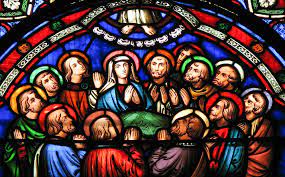
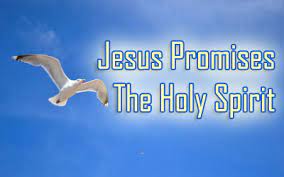
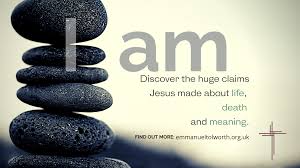
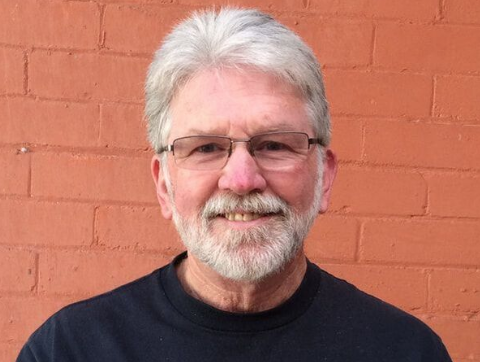
 RSS Feed
RSS Feed